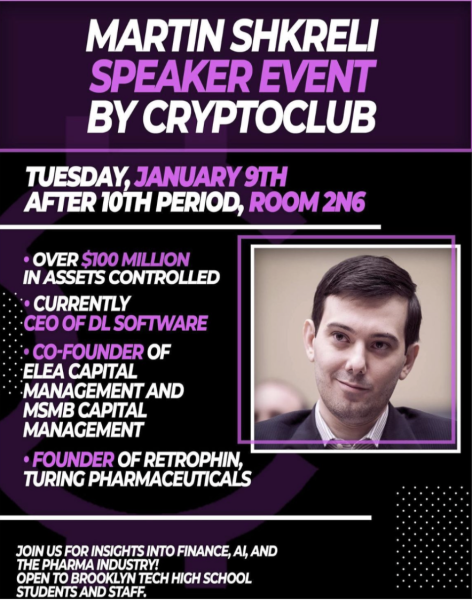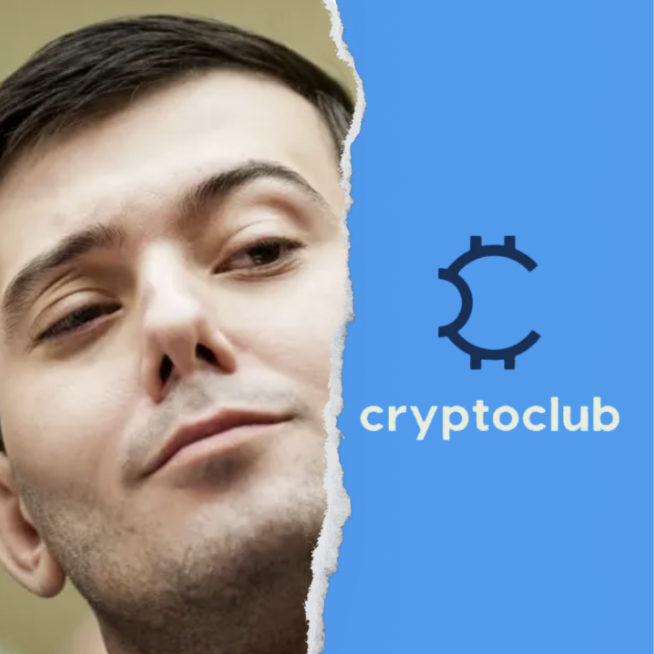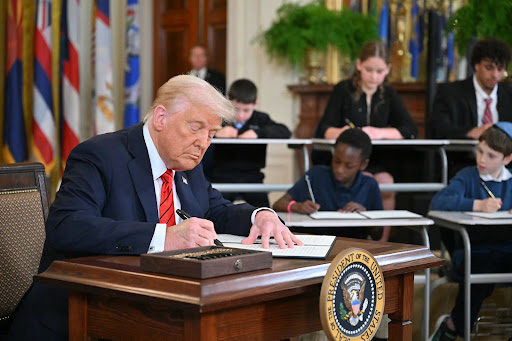On January 9th, notorious “Pharma Bro” and convicted securities fraudster Martin Shkreli was invited by Brooklyn Tech’s Crypto Club as a guest speaker for an afterschool event. A mere day before the talk, Principal David Newman was, in his words, “almost accidentally” made aware that Shkreli was scheduled to come and speak when someone brought the event’s flyer to his attention. He swiftly canceled the event after consulting with Tech’s lawyers and press office, foreseeing the event to be a “bad PR risk.”
Shkreli is the former CEO of the pharmaceutical company Retrophin, Inc. and was the founder of hedge funds MSMB Capital Management LP and MSMB Healthcare Management LP, where he scammed investors out of millions of dollars. Shkreli is also responsible for skyrocketing the price of the lifesaving HIV drug, Daraprim, inflating its price by over 5,000% from its initial $13.50 per pill to $750 per pill. In August of 2017, he was convicted on two counts of securities fraud and one count of securities fraud conspiracy, receiving a seven-year sentence that he finished early in May of 2022.
Following the cancellation of the event, Shkreli responded to a Daily Beast reporter’s questions about the mishap by telling them to “lick his [genitals].” His remarks did not stop there. “I will host a parade in [B]rooklyn on a harambe float in front of the DOE [Department of Education] building, you don’t know me,” he posted on X.

After seeing Shkreli’s public reaction to his canceling the event, Mr. Newman felt that his decision was the right one. “I can only imagine…him being alone with students for hours, what he would say. [I] can’t imagine that would be good for them.”
This incident not only caused a ripple of commentary from tabloids such as The New York Post, The Daily Beast, and Daily Mail, but also from the executive officers of the Crypto Club. The club’s president, Software Engineering major Nikita Manannikov (’25), took his frustrations with the cancellation of the event to the club’s Instagram story. “…This infringes on our freedoms of speech, expression, and learning,” the post wrote. He continued, writing that he would “make sure that the event takes place, whether with support from the DOE or not.”
Manannikov feels, “[The] DOE is a governmental establishment that still needs to hold their PR… Its goals are not exactly to educate and bring free for all education.” He likened this situation to the censorship he and his family escaped in Russia when they immigrated to America, explaining that he “learned that the United States, in terms of freedom of speech, is not as free as some people believe.”
Software Engineering major Samuel Galashev (’24), president of the Young Entrepreneur Association and treasurer of the Crypto Club concurred with Manannikov, expressing that, “It’s really hard to argue with the higher-ups and the DOE. As a student, you slowly start to realize that you don’t have much power.”
Constitutional Law teacher Mr. Stephen Stavola shed some light on whether barring Martin Shkreli from the event was a violation of the First Amendment. Although there is no precedent that directly regards the notion of restricting clubs from bringing in certain speakers, Mr. Stavola did refer to Tinker v. Des Moines (1969), where the Supreme Court ruled that a school administration can only forbid certain conduct if it can reasonably forecast “a substantial and material disruption in the school environment, or [if it imposes] an infringement on the rights of other students.” Mr. Stavola expressed that he doesn’t “think that an administration can prevent someone from speaking merely on the basis of their ideology.”
However, Mr. Stavola made the distinction that this scenario, in all of its legal nuance, does not concern the free speech of the students specifically and that it rather “undermines free speech in the receiving of information.” Mr. Stavola acknowledged that the scandalous behavior Shkreli has been known to exhibit shows that he has tendencies of harassing others and could therefore be a safety risk to students.
“There’s more going on…in this particular case. We’re not just talking about the ideas…we’re talking about potential substantial disruption in regard to questions of safety,” he said.
Using this interpretation, the school administration has the grounds to bar him from the event as there is a reasonable forecast of a disruption to the school environment or the safety of students.
With intentions of bringing “alternative finance” to his members, Manannikov said he wanted to hear Shkreli’s experience working in both traditional and decentralized finance. In traditional finance, also known as TradFi, the clients interact with centralized entities such as banks. Decentralized finance, or DeFi, emerged as a platform that allows clients to conduct financial transactions without centralized institutions. “Initially, I met him at Cornell…and, in general, I found him to be a very interesting person. When I say interesting, I do not mean that I approve of all of his actions, but…[his actions] don’t invalidate his knowledge and experience.”
In response to the possibility that Shkreli could have shared or suggested controversial information or views to members of the Crypto Club, Manaanikov offered, “[Our club’s] job is to provide as many perspectives as we can and then allow members to decide whatever they believe is right.”
Knowing Shkreli’s reputation, Manannikov was aware that holding this event could raise disputes among students and staff, “But it didn’t stop me really, because I thought that if I cleared the event with staff members of the school, it would be fine.” After asking one of the Coordinators of Student Activities (COSA) and “various staff members,” Manannikov was told that there are no rules against bringing a formerly incarcerated person onto school property.
Mr. Newman pointed out that although he approved of a formerly incarcerated individual to come speak, “Nobody knew [Shkreli] was coming.” Formerly incarcerated individuals have only ever come to speak about their experiences in prison to students, particularly those from the Law and Society major, but Mr. Newman contended that he “couldn’t tell you what [Shkreli] knows about crypto,” and that he didn’t want students hearing about Shkreli’s experiences in the U.S. pharmaceutical industry, as advertised in the flyer.
This miscommunication between Manannikov and staff members brought emphasis to the fact that there is not currently a standardized procedure regarding the authorization of guest speakers. As of now, Mr. Newman evaluates this by considering whether the guest in question would bring any sort of negative press to the school and whether they would “bestow any positivity” to the students. Mr. Newman concluded that “Shkreli failed” these criteria.
However, Galashev believes that a stronger guest speaker policy involving authority figures is not necessary. “Screening our speakers will create the same kind of situation where you have a certain party at the top controlling what the narrative [should] be, and that seems like the perfect tool to polarize students.” He feels that having communication with the club’s advisor is enough authorization in itself and, in his experience, requiring more approval brought dominance over his and his club’s learning.
In the future, Manannikov might protest this and any similar decisions, working to hold the event outside of school grounds. In that regard, Galashev feels that this is an extreme length that he and his club members should not have to go to. “We made this event for students to be educated and now we are being [put in] this spot where students have to go out of their way to go see Martin Shkreli. That’s not fair.”
The cancellation of the event came as a grave disappointment to the Crypto Club. Galashev described Shkreli, who once self-described himself as “the most successful Albanian in the world,” as “a very big inspiration to lots of people, especially Eastern European first generations like me and himself.” With this event having been almost a year in the making, the members of the Crypto Club were, overall, very upset by its cancellation. Nonetheless, Galashev emphasized that “this is not the tip of the mountain…Our clubs move on.”







































